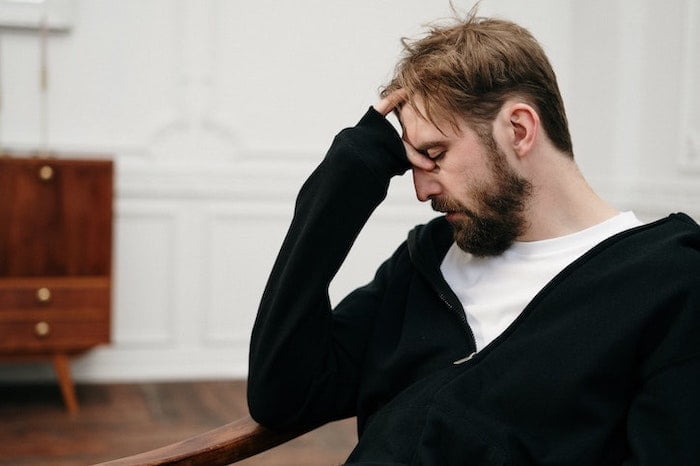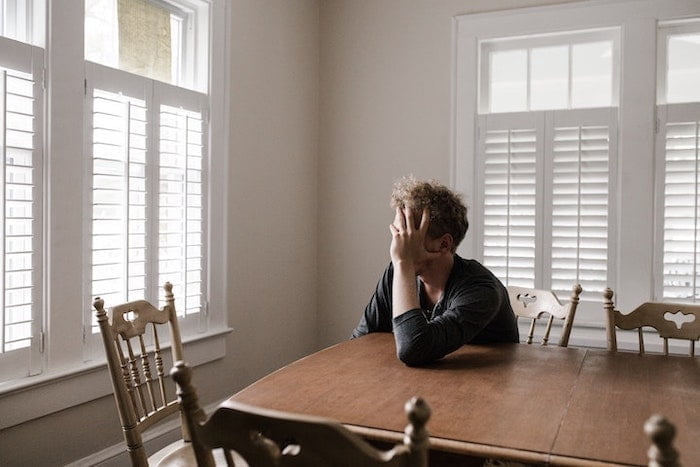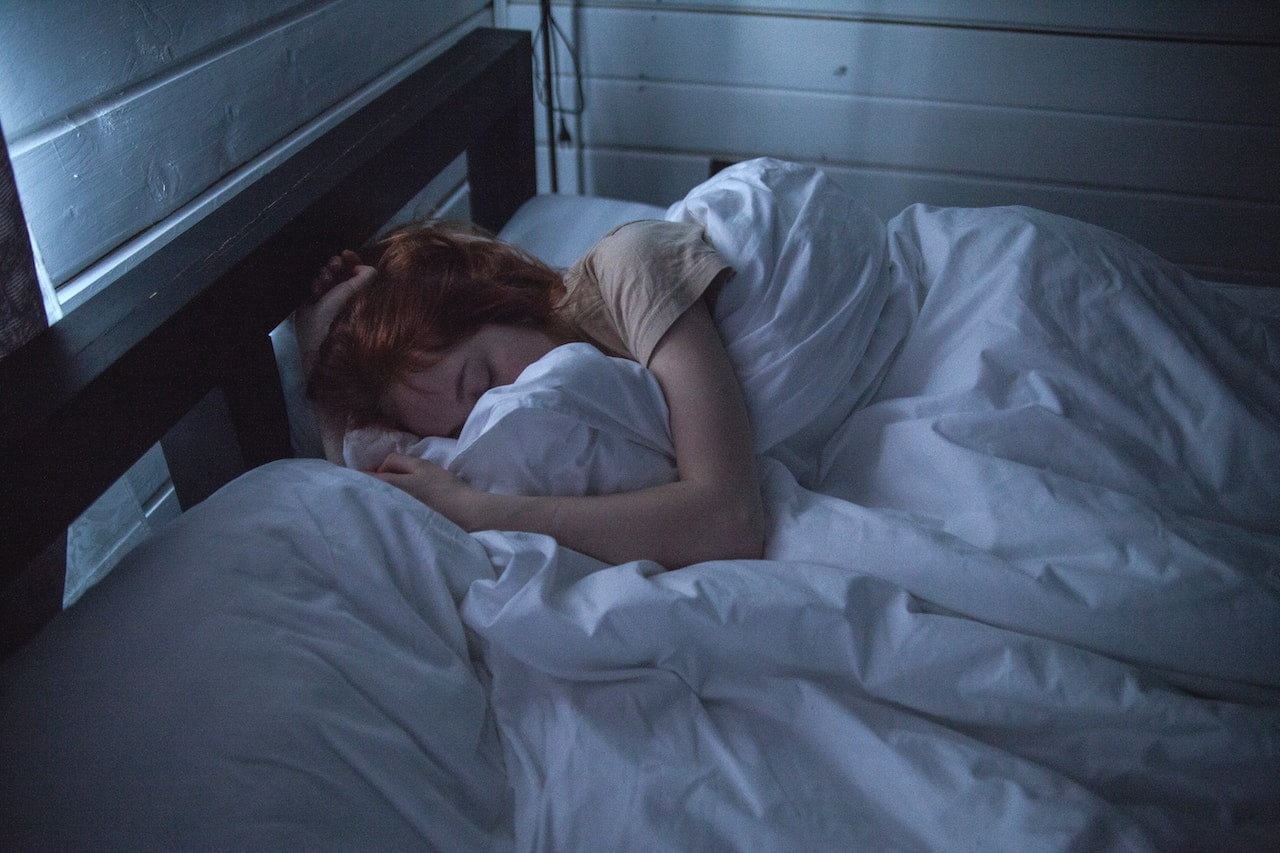Dual Diagnosis: Insomnia
Quick links for dual diagnosis and insomnia
- What is insomnia?
- What are the signs and symptoms of dual diagnosis insomnia?
- What are the risk factors of dual diagnosis insomnia?
- What is the relationship between insomnia and addiction?
- Treatment for insomnia and addiction
- How to get more information about insomnia and addiction
- References for dual diagnosis insomnia
Insomnia is a condition that greatly impacts an individual’s quality of sleep.
It can limit how long an individual is able to sleep or stop them from achieving it all together, negatively impacting their emotions, cognitive skills, physical health and productivity as a result. [1]
Several factors can influence an individual’s susceptibility to develop insomnia.
Their ability to sleep may be hindered by their work life, any prescription medications they are taking, or how much caffeine or nicotine they consume.
Those who suffer from insomnia are also more likely to develop an addiction, [2] resulting from the sedative effects that substances such as alcohol provide. While substance use may help them sleep in the beginning, it can be incredibly dangerous and ultimately worsen their insomnia.
What is insomnia?

Man holding his head suffering from insomnia and addiction
Insomnia is a sleep disorder that limits an individual’s ability to fall asleep or sleep for long periods of time.
Those who suffer can stay awake all night, wake up too early, or only manage to sleep for a few hours each night.
Sleep is a very important component of a healthy lifestyle.
For most adults, it is recommended they get around 6 to 9 hours of sleep each night, and a slightly higher amount is recommended for children.
When an individual does not regularly get this amount, it can cause a variety of effects. [3]
As a result, those who suffer from insomnia often experience mood swings, reduced cognitive ability, and limited productivity throughout the day.
The condition tends to arise in two forms:
- Acute insomnia occurs on a short-term basis, affecting an individual for a matter of days. This often occurs as a result of circumstances within their life, such as receiving distressing news or being anxious about an upcoming event.
- Chronic insomnia tends to last for longer periods of time. With this form of the condition, the cause tends to lie with an individual’s long-term mental health and medical conditions.
What are the signs and symptoms of dual diagnosis insomnia?

Individual leaning on a table looking tired whilst suffering from insomnia and addiction
Although insomnia always has an impact on the sleep of those it affects, how it does this can vary for each individual.
For example, an individual may experience:
- An inability to sleep at all
- Being able to sleep for only a few hours at a time
- Waking in the middle of the night and being unable to fall back asleep
- Waking early in the morning and being unable to fall back asleep
- Feeling tired throughout the day but not being able to sleep at night
Struggling to sleep will also subject an individual to effects that, while not directly related to sleep, are a result of their inability to rest.
These include:
- Disorientation and confusion
- Irritability and mood swings
- Weakened immune system
- Lower pain threshold
- Decreased productivity and concentration
- Poor judgement
- Inhibited memory
- Lack of impulse control
Many of these effects contribute to the statistic that insomniacs are more likely to get into harmful accidents than other individuals. [4]
Poor judgement and disorientation, to name just two, increase an individual’s chances of falling, tripping, or unsafely operating a vehicle.
What are the risk factors of dual diagnosis insomnia?

Woman lying in bed suffering from addiction and insomnia
An individual’s chances of developing insomnia can vary depending on a variety of factors. [5]
Common triggers that increase an individual’s risk include:
- A demanding and restrictive work/travel schedule
- Intense stress or anxiety
- Medications that alter an individual’s brain chemistry
- Frequent or late use of caffeinated products, such as coffee
- Frequent or late use of nicotine (smoking)
- Poor or irregular sleeping habits
- Eating late at night
The factors listed above tend to increase an individual’s risk of acute insomnia as they tend to be short-term and more easily resolved.
For chronic insomnia, however, the risk factors tend to be much more long-term. An individual is, therefore, more likely to develop it if they have a long-term health condition – either physical or mental – which causes them distress and impacts their brain chemistry.
What is the relationship between insomnia and addiction?

Man struggling with addiction and insomnia speaking with a therapist
Those who struggle with insomnia are often more likely to also develop a substance abuse condition. [6]
This is thought to stem from the idea that those with the condition seek to self-medicate, either as a means of aiding sleep or numbing the effects of their inability to sleep.
This kind of addiction can occur with several substances, including both medicinal and non-medicinal materials.
For example, an individual may turn to alcohol or drugs, or they might begin to abuse sleeping pills prescribed to them by a medical professional.
Insomnia and prescription drug addiction
When an individual is struggling to sleep, a doctor may choose to prescribe them medication designed to aid them. For example, Zolpidem is a drug that boosts the presence of gamma-aminobutyric acid in the brain, creating an overall calming effect.
However, many of these medications have a high abuse risk, and those who struggle with insomnia may become dependent on them to function, even when they no longer require it to sleep.
Zolpidem, for example, can become addictive if used for longer than 4 weeks.

Patient sat on a sofa and speaking with a medical professional about insomnia and addiction
Insomnia and alcohol addiction
Alternatively, an addiction can develop for other substances, such as alcohol.
This stems from alcohol’s sedative effect on the brain, which can simultaneously ease an individual into sleep and relieve them of their other pains and discomforts.
However, alcohol’s positive effects are soon outweighed by the problems that it causes.
It quickly alters the body’s chemistry, shaping it so that alcohol becomes essential for the rest of the body to work. If alcohol is not consumed, withdrawal symptoms occur, forcing an individual to continue regular consumption.
At this stage of addiction, alcohol exacerbates the insomnia it was originally taken to soothe. As a depressant, alcohol begins upsetting the brain’s chemistry, further worsening an individual’s ability to sleep.
To combat this, individuals often seek to consume even more alcohol to overcome their increased tolerance and achieve the substance’s sedative effects once more. This cycle of addiction becomes increasingly dangerous as larger and larger volumes of alcohol are consumed over time.
Treatment for insomnia and addiction

Man speaking about insomnia and addiction at home with a medical professional
Fortunately, insomnia is a treatable condition. [7]
In many cases, a medical professional will outline advice as to how an individual can improve their sleep by themselves.
Such tips might include:
- Establishing a sleep routine (including avoiding sleep during the day)
- Regular exercise
- Refraining from eating or smoking before bed
- Reducing consumption of caffeine and nicotine
- Maintaining good sleep hygiene [8]
In some cases, these behaviours alone will not be enough to curb an individual’s inability to sleep.
Cognitive Behavioural Therapies (CBT) are a form of talking therapy that may also be employed to help an individual work through why they are unable to sleep.
In CBT, an individual will discuss what thoughts and feelings might be keeping them awake.
The counsellor will then help them develop strategies of working around these stressful instances, improving their sleep in the long term.
As a last resort, medicinal support may be prescribed in the form of sleeping pills. These are designed to calm the brain and improve the chances of sleep, but they are not preferred as they do not tackle the underlying causes of insomnia.
For those with chronic insomnia, research suggests a combination of CBT and medicinal treatments can be beneficial. [9]

Two men having a serious conversation about insomnia and addiction
Treating insomnia and addiction together
When an individual is simultaneously struggling with insomnia and addiction, it is essential that they seek treatment for both conditions at the same time.
An individual’s substance abuse will be greatly linked with their insomnia, and so both will need to be worked through within the same process.
As a result, while participating in some of the treatment methods mentioned above relating to insomnia, an individual must also receive treatment for their addiction.
This might involve CBT designed to work through the underlying emotions that prompt substance abuse, as well as medically assisted detox.
The latter method involves the complete withdrawal of the substance, accompanied by support from medical professionals.
In some cases, medicinal substances such as benzodiazepines may be prescribed to ease the impact of withdrawal symptoms.
How to get more information about insomnia and addiction

People in a drug and alcohol rehab clinic discussing insomnia and addiction
If you or someone you know is struggling with insomnia, it is important to seek medical help.
Acute insomnia can be eliminated with treatment, and the impact and longevity of chronic insomnia can be greatly reduced.
Speak to your GP to discuss the details of your situation and what treatment methods are available.
If you or a loved one are also struggling with addiction, mention this to your GP or speak to an addiction support charity.
Give our expert team a call today to begin helping yourself or a loved one away from insomnia and addiction – reach out to us on 0800 326 5559
References for dual diagnosis insomnia
- https://www.ncbi.nlm.nih.gov/books/NBK19961/
- https://pubmed.ncbi.nlm.nih.gov/30452139/
- https://www.webmd.com/sleep-disorders/ss/slideshow-chronic-insomnia-health-impacts
- https://www.ncbi.nlm.nih.gov/pmc/articles/PMC1978319/
- https://www.nhlbi.nih.gov/health/insomnia/causes
- https://www.ncbi.nlm.nih.gov/pmc/articles/PMC7704430/
- https://www.nhlbi.nih.gov/health/insomnia/treatment
- https://www.nhs.uk/every-mind-matters/mental-health-issues/sleep/
- https://www.ncbi.nlm.nih.gov/pmc/articles/PMC2924526/






